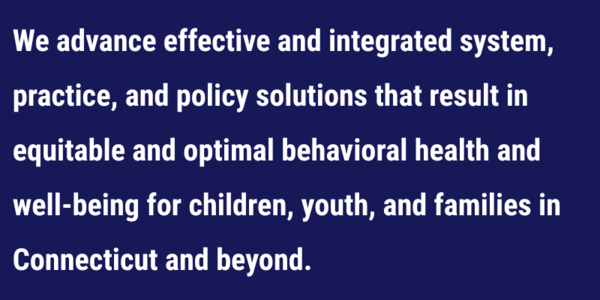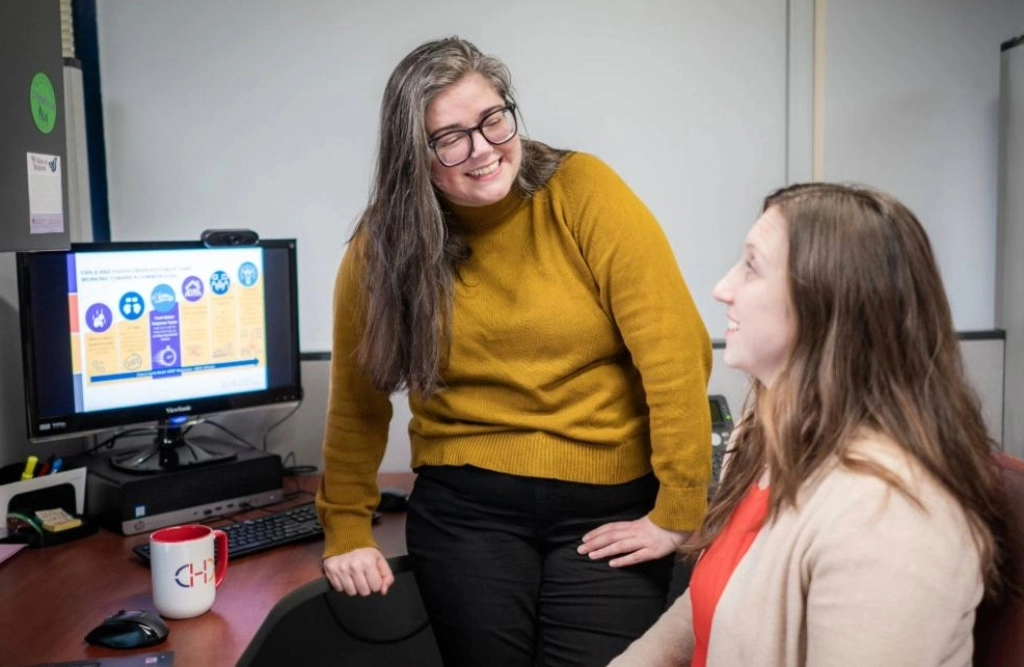A bridge to better behavioral health
The Child Health and Development Institute (CHDI) provides a bridge to better behavioral health and well-being for children, youth, and families in Connecticut and beyond.
We empower policymakers, champion providers and educators, and spark partnerships that advance solutions and improve care for children, youth, and their families.
A bridge to better
We collaborate with state, community, and family partners to identify challenges and advance research-based solutions that improve behavioral health care across child-serving systems.
CHDI helps providers, educators, and other child-serving professionals expand and enhance care with prevention and early intervention programs, evidence-based practices, and research-based training that integrates family voice.
CHDI helps state agencies, legislators, and other policymakers apply data and research to inform decisions so they result in better outcomes for children and their families.
Who we are
Our Vision
All children will grow up healthy and thrive.
Our Mission

Our Strategy
We identify, demonstrate, support, and promote effective behavioral health innovations that will result in sustainable change, working in partnership with providers, educators, policymakers, academic institutions, state agencies, families, and others.
Learn more about our strategic approach
Our Values
CHDI’s core values have been intentionally and collaboratively designed to reflect the culture we strive to embody and the ways that we approach our work. We aspire to uphold these values in order to transform our organization as well as the systems, practices, and policies that promote the health and well-being of children.
Read our core values statement
Our Vision
All children will grow up healthy and thrive.
Our Mission

Our Strategy
We identify, demonstrate, support, and promote effective behavioral health innovations that will result in sustainable change, working in partnership with providers, educators, policymakers, academic institutions, state agencies, families, and others.
Learn more about our strategic approach
Our Values
CHDI’s core values have been intentionally and collaboratively designed to reflect the culture we strive to embody and the ways that we approach our work. We aspire to uphold these values in order to transform our organization as well as the systems, practices, and policies that promote the health and well-being of children.
Read our core values statement
OUR APPROACH
Collaboration in action
CHDI is an intermediary organization that connects people, information, data, and systems.

Our strategic process
Identify
Identify problem, gap or need in system
Develop
Develop or identify research-based innovation
Test
Test innovation to determine effectiveness and feasibility
Disseminate
Disseminate effective innovations widely and embed in statewide system
Create
Create infrastructure for policy and system sustainability
Evaluate
Evaluate effects of innovation on child and/or system outcomes
Adjust
Adjust to ensure optimal outcomes
